Fashion: Notes on Priyanka Chopra, Kangana Ranaut’s film and a curious case of industry exposé
Fashion is a highly acclaimed Madhur Bhandarkar film which completes 13 years of release this week
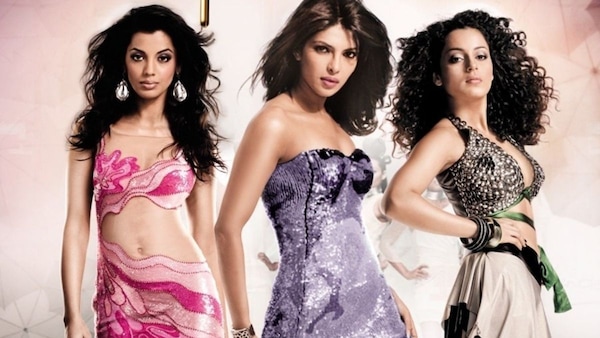
Last Updated: 09.24 AM, Nov 11, 2021
Madhur Bhandarkar's Fashion, starring some of Bollywood’s bonafide heavyweights, was welcomed with a thunderous applause in 2008 from both critics and viewers. After all, it purportedly was a gritty exposé of the burgeoning fashion industry, complete with rampant abuse of power at every level. It was, at the time, the era defining realistic film that ably justified its commercial elements.
In 2021, thirteen years since its release, Fashion appears to perpetuate the same stereotypes that it attempted to dispel. So the heroine of the story is a small-town, wide-eyed woman who has grown up worshipping the fashion world, and now hopes to lead it. Priyanka Chopra’s Meghna Mathur is driven, but her fierce ambition isn't celebrated. It's vilified.
Not that it is spelt out, like in Aitraaz, where the protagonist (also played by Priyanka Chopra) is admonished by her fiance (Akshay Kumar) for fostering ambitions of a better livelihood. In Fashion, Meghna calls out her boyfriend for being jealous of her achievements, but is met with instant condescension. She is told her accomplishments are a result of the sexual favours she doles out to her boss. She does leave him, but the man’s misogyny goes unchecked. He finds another woman, exchanges pregnant glances with Meghna, but still emerges as an ideal man.
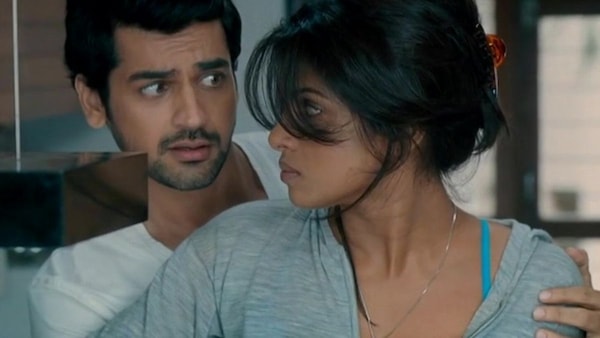
Similarly, all fashion designers in this universe are flamboyant gay men who are, in most cases, nasty and petty. The ones who are not, are closeted. There is no nuance whatsoever to be found in characterising members of the LGBTQI community, despite quite a few of them being key players in the narrative. Likewise, Mugdha Godse’s Janet Sequeira is a Christian woman, and thus, is viewed by a mainstream Hindu storyteller as an epitome of debauchery, but with a heart of gold.
Like in Page 3 and Heroine, Bhandarkar's exposé seems coloured by popular notions of the worlds he tries to build. Take any party he creates in his films. They look like regurgitation of the same scene, with blinding lights and rampant contraband consumption. Although, perhaps the most problematic is the film's racism. Meghna's epiphany is triggered, not by her repeated unprofessional behaviour or dismissal of friends, but after she sleeps with a Black man in her drugged stupor. She looks horrified when she wakes up beside the man, hurriedly collects her belongings and scuttles out in the thick of the night. He could have been of any ethnicity, but that Bhandarkar chose to cast a Black man in the part goes on to highlight our inherent racism.
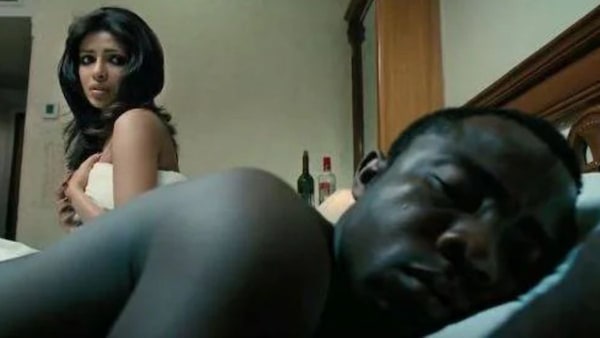
Everyone is a stereotype, be it Maanav (played by Arjan Bajwa), a struggling model Meghna befriends at an audition, Anisha (played by Kitu Gidwani), the slickly-dressed modeling agency head, or Abhi (played by Arbaaz Khan), a ruthless fashion tycoon. To make this world more believable, several celebrities make cameo appearances, from Konkona Sensharma to Ranvir Shorey. These metatheatrical moments are fun, but do not really provide an insight into the modeling world.
What Fashion effectively did was celebrate female friendships. Sure, Shonali Bose (played by Kangana Ranaut) and Meghna were bitter rivals, but they are pitted against one another by a twisted corporate machine. They are just the cogs in a wheel that are supplanted at will; are forced to prove their worth and desirability, and perpetually made to feel like they need to emerge as winners. But in this dog-eat-dog world is also Janet, an aspiring model who assumes the role of Meghna’s mentor and friend after she relocates to Mumbai. She is consistently mature in her dealings with Meghna, and is never envious of her achievements. Even when Meghna decides to take Shonali in after she escapes from a rehabilitation facility, she doesn't necessarily do it out of pity. She is empathetic towards Shonali, because they have both been victims of a skewed system.
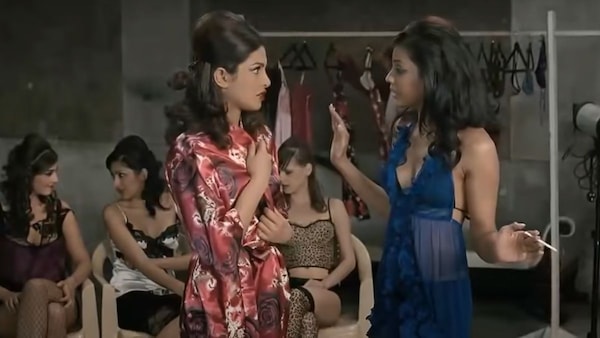
Fashion may not be a cinematic masterpiece, but it was important in Priyanka Chopra becoming a phenomenon overnight. Meghna is an anti-heroine. Her codes of conduct do not necessarily align with the general populace. She takes advantage of her friends and is often vile to them. Yet, Priyanka imbued Meghna with a humaneness and vulnerability that ensured that the audience empathises with her as much as they condemn her. The role won her her first National Award.
Conversely, it seems almost impossible to not view Kangana’s selection in the flm as typecasting. After all, the two successful films that Kangana had led since her debut, Gangster and Woh Lamhe, both saw her as a raging alcoholic and a drug user. Nonetheless, Kangana’s Shonali was acted out to perfection. Her story, like that of Janet, is viewed from Meghna’s lens. Thus, hardly anything is known about their lives before they opted for a modelling career. What Bhandarkar lacked in writing, though, was more than compensated for by the masterful acting of Ranaut in her sixth feature and Godse in her screen debut. The intelligent casting of the three actors spun magic on screen.
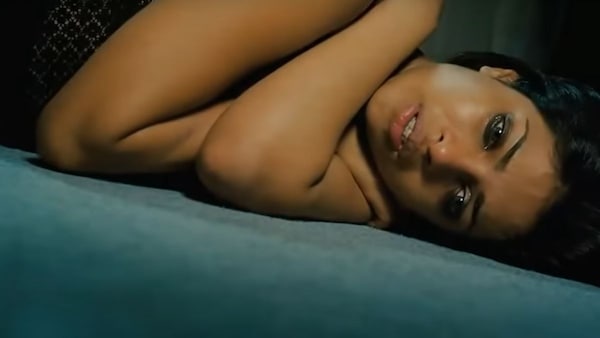
Bhandarkar's film also succeeded in foregrounding the isolation of working in a big metropolis, away from family, friends and any remote relations. Meghna's journey, among other things, spotlighted on her becoming less codependent on the men in her life. Her associations with men are almost always driven by an acute sense of isolation. She starts living with Maanav out of compulsion, because she finds it impossible to find a rented accomodation as a single woman working in the entertainment sector. Even when she finds a new house, it is gifted by her boss, who has the economic means to invest in real estate for friends.
Irrespective, Fashion does not stand the test of time. Despite the accolades that may have come its way, in hindsight, Fashion feels like a flipbook of gossip columns stitched into a narrative. To that effect, it is perhaps why Heroine, which had a similar story and released four years later, was met with widespread criticism. Times are a-changing, why shouldn’t our films?
